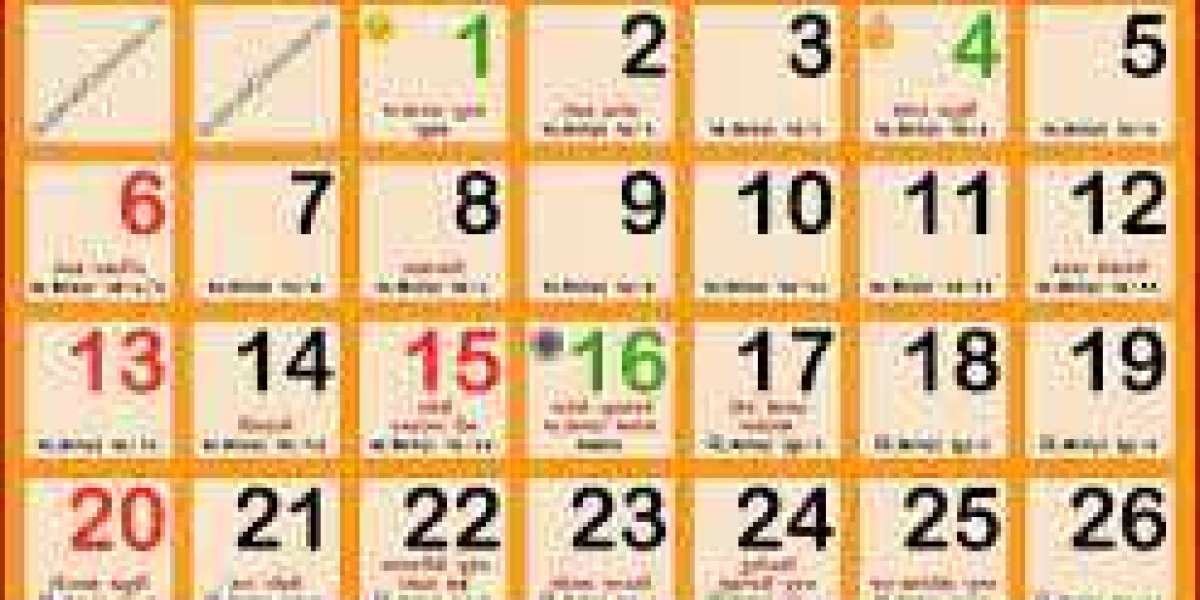The Hindu calendar, also known as the Panchang or the Vedic calendar, is a profound system that governs the lives of millions of Hindus worldwide. It is more than just a chronological tool; it is a spiritual and cultural guide that defines auspicious time, religious festivals, and celestial events. Rooted in ancient wisdom and cosmic alignment, the Hindu calendar serves as a bridge between the human realm and the divine realm. Today, let's explore the significance of the Hindu calendar, its unique features, and how it helps Hindus deepen their connection with spirituality and tradition.
The Lunar and Solar Aspects: The Hindu calendar combines both lunar and solar aspects, creating a unique and comprehensive system. The lunar component, called the Tithi, represents the phases of the moon and spans approximately 30 days. The solar aspect, known as the Saura Maasa, aligns with the solar cycle and corresponds to 12 months. By harmonizing these two elements, the Hindu calendar accounts for both the lunar and solar influences, providing a holistic understanding of time and its spiritual significance.
The Panchang: The Five Components: The Panchang, meaning "Five Limbs," is the core framework of the Hindu calendar. It comprises five essential components: Tithi (lunar day), Vaar (day of the week), Nakshatra (lunar mansion), Yoga (auspicious union of the sun and the moon), and Karana (half-day duration). These components collectively determine the auspiciousness of a particular day and guide individuals in planning religious ceremonies, rituals, and festivals. The Panchang serves as a celestial roadmap, guiding Hindus through the ebb and flow of divine energies and offering a deeper understanding of the cosmic fabric that interweaves with their lives.
Festivals and Observances: The Hindu calendar is brimming with vibrant festivals and observances throughout the year. Each festival has its own unique purpose, mythology, and rituals. From Diwali, the Festival of Lights, to Holi, the Festival of Colors, and Navaratri, a nine-night celebration of the Divine Feminine, these festivals not only bring communities together but also provide a means to express devotion, seek blessings, and celebrate the diversity and richness of Hindu culture. The Hindu calendar acts as a guide, ensuring that these festivals are celebrated at the most auspicious times, aligning devotees with the divine energies associated with each occasion.
Ekadashi and Other Auspicious Days: The Hindu calendar designates specific days that hold great significance for spiritual practices and observances. Ekadashi, the eleventh day of the lunar fortnight, is considered highly auspicious for fasting, prayer, and meditation. It is believed that observing Ekadashi helps purify the mind and body and facilitates spiritual growth. Other auspicious days, such as Maha Shivaratri and Akshaya Tritiya, are celebrated with devotion and reverence, as they are associated with divine blessings and the fulfillment of wishes. The Hindu calendar ensures that individuals are aware of these sacred days, allowing them to prepare and participate wholeheartedly.
Conclusion: The Hindu calendar is not just a mere record of time; it is a spiritual compass that connects Hindus to their heritage, traditions, and the cosmic order. Through its lunar and solar aspects, the Panchang, and its inclusion of festivals and auspicious days, the calendar guides devotees in aligning their lives with divine energies and celestial influences. It serves as a constant reminder of the importance of sacred time, spiritual practices, and community celebrations. By embracing the Hindu calendar, individuals can deepen their connection with the divine, foster cultural unity, and lead lives infused with devotion, gratitude, and spiritual harmony.








